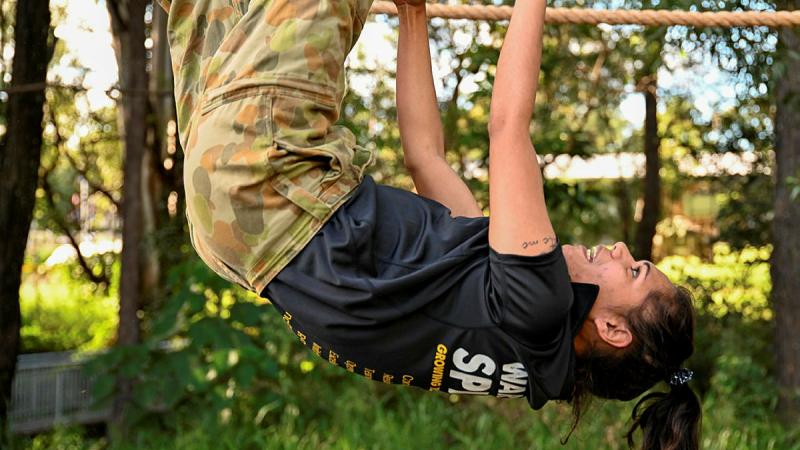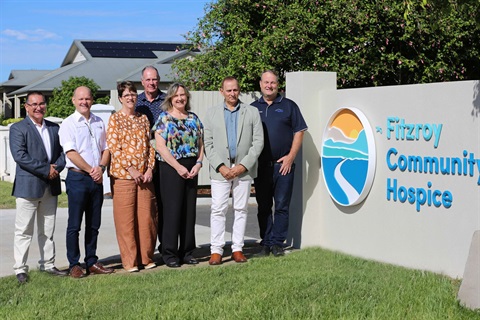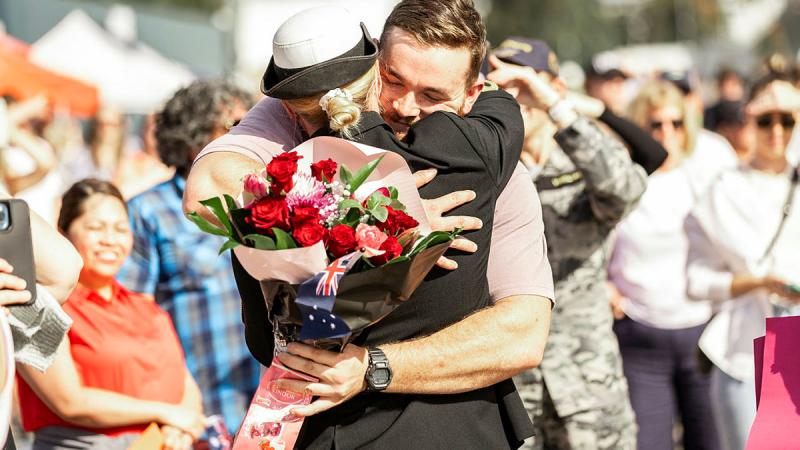75th anniversary of the Universal Declaration of Human Rights
Statement by Volker Türk, UN High Commissioner for Human Rights
Excellencies,
Friends,
I want to thank Ambassador Storm for inviting me, and Daniela Soto for her contributions to justice and equality – especially for young people, indigenous peoples, Afro-descendants and women.
I’d also like to pay tribute to the remarkable career of Vice-President Francia Márquez, both as an activist for human rights and environmental justice, and as a lawyer. The mighty symbolic force of her leadership is an inspiration to many people around the world who struggle for dignity and equality.
We’re here to talk about an essential landmark on the path to greater human dignity.
A simple document, drawn from cultures across the world, and which has powered colossal changes in lives, policies and mindsets.
In this document, there is no North and South, no poor and rich, no right and left, no barriers of colour, gender or class.
We are all born equal. We share the same fundamental human rights – civil and political rights; economic, social and cultural rights; and the right to development.
The right to live free from any form of discrimination, arbitrary detention and torture.
The rights to education and to adequate food, healthcare, clean water, sanitation, social protections, and housing.
Freedom of expression, opinion, and the right to privacy. Freedom of association and assembly, including the right to demonstrate peacefully.
The right to fair and just conditions of work.
To fair trial and to equal protection of the law.
To participate, freely and meaningfully, in public affairs.
Seventy-five years ago, among the ruins of World War Two, States from every region of the world came together to create a declaration that would end the churning cycles of horror, destruction and poverty which the world had endured.
They united behind this text. Because from bitter experience, they knew that human rights are the steps that will impel communities, countries and humanity away from warfare, inequalities and misery.
Across the past 75 years, the Universal Declaration of Human Rights has guided tremendous progress in liberty and development. Many structures that maintained severe racial and gender discrimination were dismantled. Poverty was pushed back, and large strides were made in education and health.
The need for governments and institutions that listen to and include people has become clearer. Many countries took back their independence.
Over the years, many commitments originally enshrined in the UDHR have been developed further. International treaties and regional frameworks have spelled out rights and obligations in greater detail. Rights have been concretized as the national level through legislative and judicial processes. New rights not envisaged at the time of the adoption of the UDHR have been recognized, such as the right to a clean, safe and healthy environment.
Many crucial institutions have been set up to improve people’s lives, on the basis of the UDHR’s bedrock engagement for human rights. In this country, the new Ministry of Equality is one such body – a breakthrough that we hope will implement much-needed policies to end discrimination against women, indigenous peoples, Afro-descendants, peasants and rural communities, young people, LGBTI+, , persons with disabilities and others in Colombia.
Perhaps most important of all, the UDHR has inspired vibrant, creative, powerful activism and solidarity, empowering people to claim their rights and to engage actively in their communities and societies. Over the last seven decades, in every part of the world, human rights defenders and civil society activists have stood up to demand realisation of our rights.
This country is a fine example of this work. I pay tribute to Colombia’s many activists and human rights defenders, who have done very consequential work to bring greater justice and peace, and more sustainable development, to the peoples of Colombia. I am deeply concerned by the violence that has been directed against them- violence which disproportionately targets indigenous and Afro-descendant leaders and activists, and is generated mainly by non-State armed actors. It is crucial to ensure accountability for these crimes, including the112 killings of human rights defenders that my Office verified last year.
I also strongly encourage greater empowerment of civil society in Colombia – including human rights defenders, community leaders, women and young people – to achieve a lasting and sustainable peace. My Office will support all such efforts, and we stand ready to give support the Government’s new “total peace” policy, including its commitment to fully implement the 2016 peace agreement with the FARC-EP, and talks with the National Liberation Army (ELN). Victims should be able to participate meaningfully in such talks, which should include full discussion of human rights issues.
Overall, Colombia’s recent progress on several key human rights issues has been impressive. But globally, this is not the case. As the UN Secretary General said last week in Davos, today “we face the gravest levels of geopolitical division and mistrust in generations – and it is undermining everything”.
The world is shifting away from its decades of progress on human rights. In the face of global recession; conflict and turmoil; the overarching threat of climate change; and many interrelated pushbacks to human rights and the future of humanity, it is urgent that we rekindle the spirit and commitment of the UDHR.
We need to forge a new world-wide consensus on rights, and begin to rebuild our trust in each other and our joint work for a better future.
I am convinced that together, based on our deeply rooted and shared values, we can build a better, more equal, more fair and prosperous world for all of us, and for generations to come.
I think many of you in the audience share that goal. But you’re asking how.
I want to insist on two points here:
One, human rights – and the Declaration of Human Rights – are universal. Equality, justice, freedom, shared development, and participation in decisions are values that we all share, and rights that we all deserve. They can, and should, be brought to life using diverse methods in different societies, but they are not restricted to one region, ethnic group or sex or gender.
Two, I want to emphasise the Declaration’s insistence on the link between freedom, and economic and social justice – and on the relation of both to peace. The UDHR is an integrated body of principles.
The artificial distinction between civil and political rights, on the one hand, and economic, social and cultural rights on the other is a political artefact of the Cold War far behind us and does not reflect the realities and richness of human experience. We need to lay it aside.
We need to emphasise action.
Action – globally and domestically – that addresses inequalities; strengthens social protections; and eliminates discrimination and other root causes of conflict, environmental crises and misery.
Action to ensure that human rights offer solutions to some of our most pressing challenges. Everywhere – because human rights are universal, without exception; and with equal and interlinked attention to civil, cultural, economic, political and social rights.
Recently I issued an appeal for all States to release all people arbitrarily detained. This was a first step towards putting our UDHR75 initiative into action. We will be following up on specific cases that need resolution. And over the course of the year, we will add more calls to States and other actors for strong specific actions that manifest their commitment to the Universal Declaration of Human Rights – culminating in a high-level pledging event at the end of the year for governments and other stakeholders
We need to emphasise people.
We must do better in reaching out to many groups -especially young people, – to combat despair and encourage them to come together with human rights movements. We must give them the tools and resources they need to do so. Movements against discrimination, movements for workers’ rights, movements for climate justice, gender equality, land rights or to build or strengthen the rule of law – all these thousands of streams can flow together in a great, towering river: the movement for human rights.
We need to reach for the future.
I see this 75th anniversary of the Universal Declaration as a launchpad that projects human rights into the next 75 years. Together, I’d like to see us embark on discussions that deliver practical solutions to existential challenges and emerging human rights concerns that threaten humanity, such as environmental and biodiversity damage, and many advances in technology and the digital sphere.
Human rights bodies need to ready ourselves for much more work.
My Office will take this opportunity for renewal. I plan to strengthen our links with the broader UN system, and within the international human rights ecosystem. Human rights tools and guidance need to inform the design and delivery of UN activities in a powerful, action-oriented and seamless manner, so that they more effectively reach and benefit people everywhere.
None of this is easy. The world is more complicated and more dangerous today than it has been for decades. But that is exactly the right time to seek and find solutions – solutions that acknowledge our shared interests and bind us together.
The Universal Declaration of Human Rights is a resonant and powerful statement of the fundamental values that unite all of humanity.
Abiding by these values is the single most important factor in ensuring peace, sustainable development, and a future of humanity that ensures dignity, equality and respect for all.
Thank you







